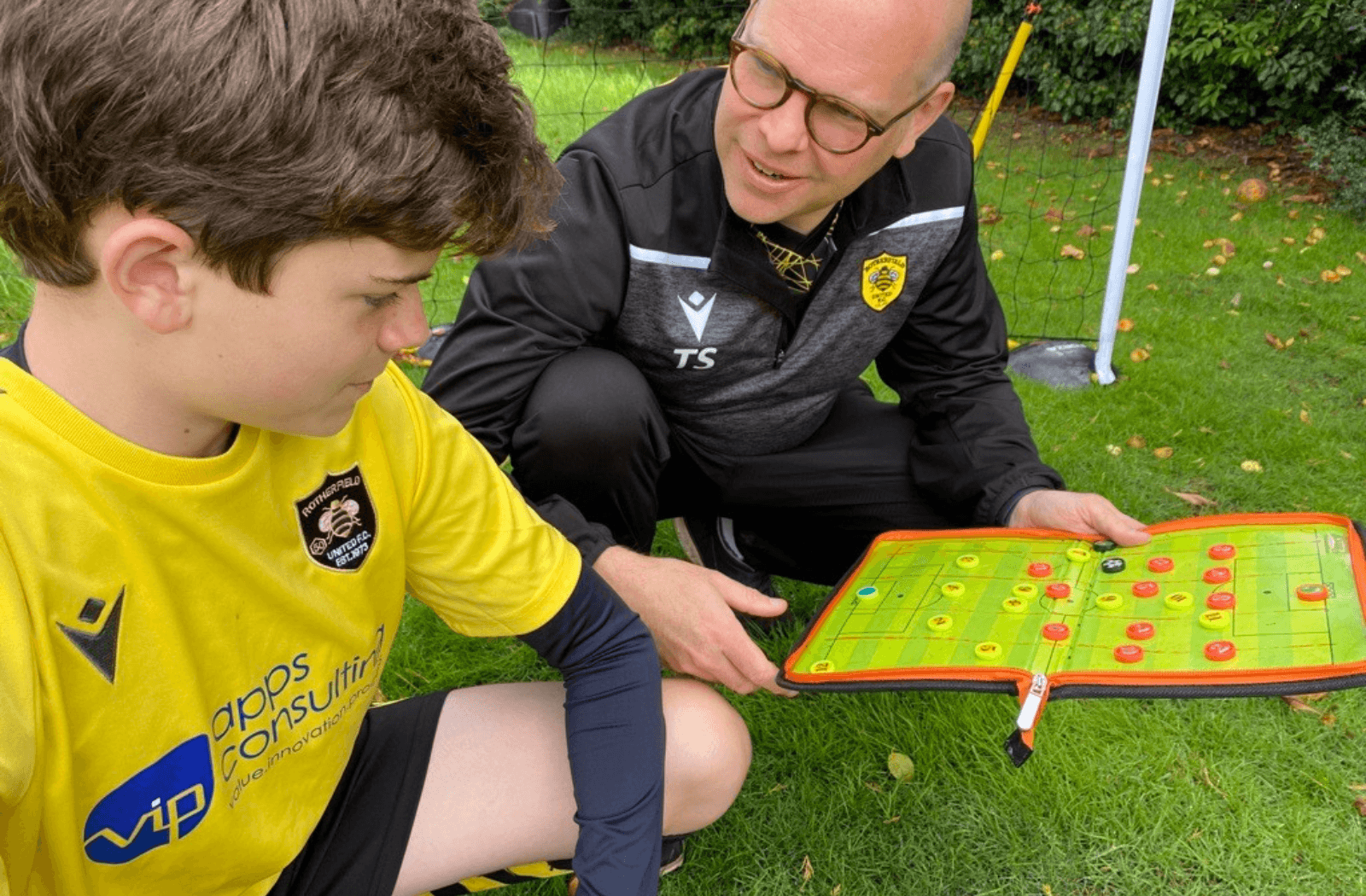Core Transferable Skills Between a Consultant and Football Coach
Professional sports and business can be very similar in many aspects: both value leadership, strategy, and competition. In both worlds, success comes from hard work and a committed team. With the right mentalities and company culture, a business can go a long way to drive growth and revenue. Unsurprisingly, sporting metaphors are so common in the business world as they help people visualise and work towards goals. But are there any similarities between the career arc of a technology consultant and being the coach of a youth football team? With over 15 years of experience in the technology and management consulting sector, our consultant Tom Spencer has worked on all types of technology innovation projects in the leasing and asset finance industry. Since joining VIP Apps Consulting in 2010, he has worked in key business transformation and technology implementations at for many global enterprises, across Europe and Americas. Along the way, he has been the coach of his children’s football team, Rotherfield United, where he manages the Wasps, a team that plays in the Berkshire Youth Development League in Reading and the Bees that play in the East Berks League. VIP Apps Consulting is proud to support both teams this season, with exclusive shirt sponsorship.
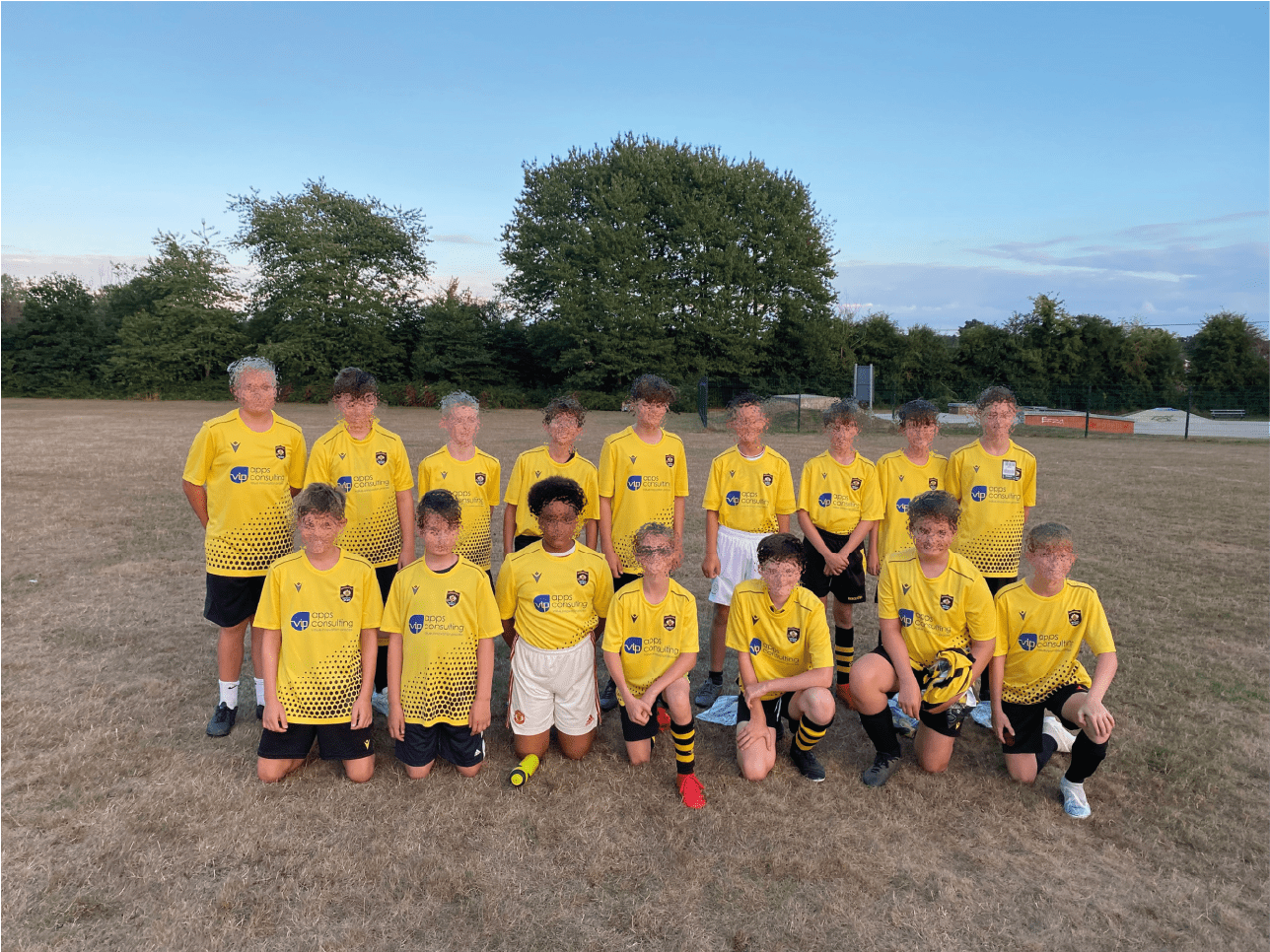
The job of coaching children in football is not an easy one. You need to understand the needs and development of each child to help them improve basic skills, such as running and kicking as well as the development of their speed, agility, and coordination. With the new season about to begin, we sat down with Tom to talk about the enriching experience of coaching these teams. We chat about his journey of mentoring his boys and the many others he had the privilege to coach and about the lessons from the world of youth sports team management that he brings into the technology and management consulting world.
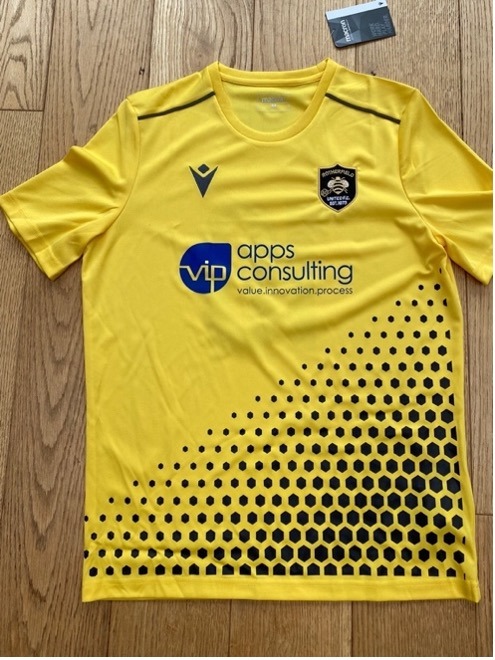
When and why did you become a coach? Which teams do you coach at Rotherfield United Football Club?
My eldest son joined Rotherfield United U6s in Sept 2014; although not a coach at the time, I always volunteered to help during training. When they started playing games at U7’s, I ran the Wasps team on match days. It carried on like this for the next three years until the main coaches left. It then fell to me and another parent (Ian Leath) to pick up the coaching side of the team.
I completed my FA Stage 1 coaching badge in late 2018 and have worked initially to maintain the team and now grow them so that we now have 34 registered players playing in two teams, the Bees and Wasps, on Saturdays.
What do you like the most about your work with the Wasps and the Bees? What has been the experience so far? Were there any challenges you had to overcome when you started coaching the team?
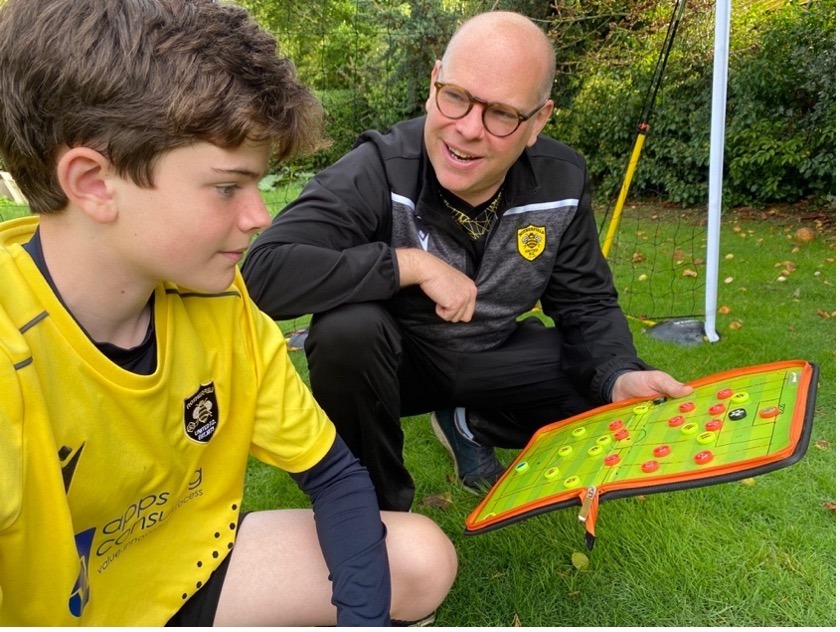
As I’m sure coaches must testify, when something you have been working on or specific instructions work, there is a sense of gratification that what you are doing is making a difference. The key reward for me is to ensure all the players get a chance to play the game, be involved in the team, and see them develop.
The other side is to manage the highs and lows of playing youth football. You often end up facing teams that are much better than you, so you must find a way to quickly rebuild the team’s confidence and refocus on what was done well while using the next training session to address areas of weakness. I’m often surprised by the resilience of the Wasps; for example, last season was a very difficult start; we didn’t win a game until December. But following the Christmas break and a few tactical changes, we started to win more games and ended up second in the league.
When I first started coaching the team, I’m embarrassed to think how chaotic the training sessions were. There was too much dead time as we moved between the activities. I learnt very quickly that you need a plan in place because you lose children’s interest very quickly. Now I’m often at training 30 mins prior to the start to get organised for planned sessions which means we can move seamlessly between the exercises.
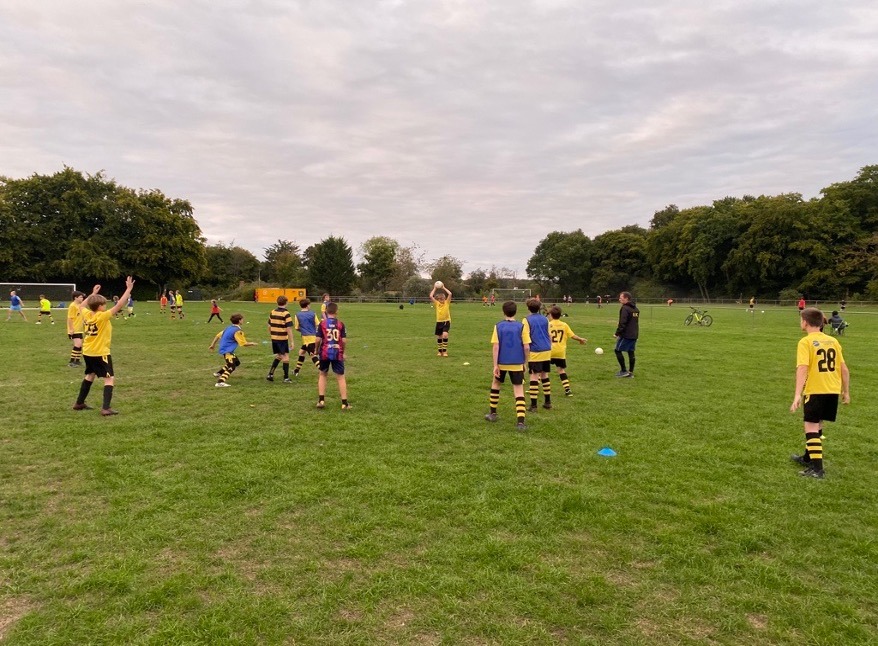
Which skills have you developed as a coach that you bring to the professional world and your work as a consultant and vice versa?
This is an interesting question; these are the key areas I see synergies with my work as a consultant:
- Planning/Flexibility. I learnt early in my career starting with Oracle that you need to be able to plan your time effectively but be flexible enough to switch activities quickly because in IT, as is often the case during a football game, it rarely goes to plan. You need to make fast decisions and take responsibility for them, and if they go wrong, be prepared to change them.
- Assess. I am always my own worst critic, whether it relates to work or my coaching. I have, therefore, always found a need to assess what I have been doing and consider what has gone well and items I can improve on. No one is perfect, but we can all strive to get better.
- Ability to Listen. As a consultant, one of the key skills is listening to the client’s requirements/goals and helping to achieve those. In coaching, you must listen to what the boys are telling you and what they would like to achieve and work out ways the team and individuals can accomplish them.
- Communication. In both consulting and coaching, you need to be able to get your messages across effectively. I have found that if you keep your messages simple, it is easy for people to understand. Once they have this base knowledge, you can then move on to more complex issues/coaching, but this should always be done in small steps. Additionally, you should also be timely with your messages, whether to parents as to the location of training/games or on a project, whether it relates to issues you are facing or deadlines that are approaching.
- Don’t be afraid to try something different. IT is constantly changing, and there are new products and methodologies that promise to be better than what you already have. You should never shy away from these and be prepared to adapt what you are doing to incorporate what they offer if there is an advantage. This is the same in football. There are lots of philosophies on training and tactics to be played in games. I have found you need to be prepared to give them a try and take out what works for you from them and try not to get stuck into a single way of coaching. There is always something new to learn.

